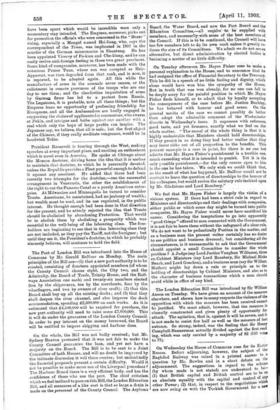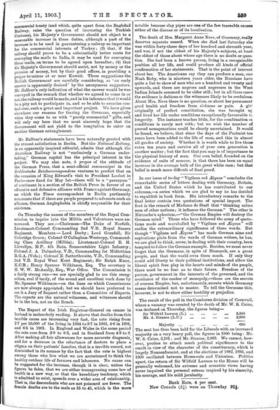On Wednesday the House of Commons rose for its Easter
Recess. Befon adjourning, however, the subject of the Baghdad Railway was raised in a printed answer to a question by Mr. Bowles and in a short debate on the adjournment. The suggestions in regard to the scheme (by whom made is not stated) are understood to be— (1) that British capital and British control are to he on an absolute equality with the capital and control of any other Power ; (2) that, in respect to the negotiations winch are now going on with the Turkish Government for a new commercial treaty (and which, quite apart from the Baghdad Railway, raise the question of increasing the Turkish Customs), his Majesty's Government should not object to a reasonable increase in these duties, although a part of the increase is to be used in guaranteeing a railway so important for the commercial interests of Turkey ; (3) that, if the railway should prove to be a substantially better route for conveying the mails to India, it may be used for conveying those mails; on terms to be agreed upon hereafter; (4) that his Majesty's Government should assist, not by money or the promise of money, but by their good offices, in providing a proper terminus at or near Koweit. These suggestions the British Government are carefully considering, as an early answer is apparently desired' by the anonymous suggestors. Kr. Balfour's only indication of what the answer would be was conveyed in the remark that whether we agreed to come in or 0 not, the railway would be made, and in his inference that it would be a pity not to participate in, and so be able to exercise con- trol over, such a great and important project. We have given elsewhere our reasons for fearing the Germans, especially when they come to us with "purely commercial" gifts, and will only say here that we most sincerely hope that the Government will not yield to the temptation to enter on another German entanglement.







































 Previous page
Previous page